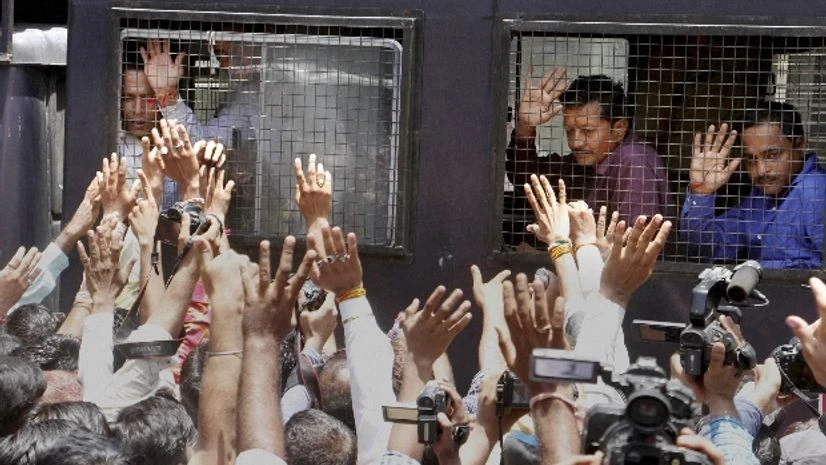Following is the timeline of the Gulbarg Society massacre case, in which a special court on Thursday convicted 24 persons and acquitted 36 others in the 2002 massacre of 69 people, including Congress MP Ehsan Jafri.
February 2002: During the Gujarat riots a Hindu mob attacked the Gulbarg Society in Ahmedabad in which 69 people were killed. Among the deceased was former parliamentarian Ehsan Jafri.
November 2007: The Gujarat High Court dismissed a petition of Zakia Jafri, wife of Ehsan Jafri, seeking the court's directive to the police to register a complaint against the then Chief Minister Narendra Modi and 62 others for their alleged involvement in the Gulbarg Society massacre.
March 2008: The Supreme Court directed the Gujarat government to set up a Special Investigation Team (SIT) for a further probe into 14 Godhra and post -Godhra communal riot cases. The SIT was asked to investigate the incidents that occurred in Godhra, Sardarpura, Gulbarg Society, Ode, Naroda Gaon, Naroda Patiya, Deepla Darwaza and the one in which three British nationals of Indian origin were killed.
August 2010: The Supreme Court permitted the SIT to conduct further probe on the complaint by Zakia Jafri that Chief Minister Narendra Modi and 62 others orchestrated the 2002 riots in Gujarat.
March 2010: The trial was put on hold because of the resignation of the special prosecutor and his assistant. Both had alleged bias on the part of the trial judge and also accused the SIT of not properly coordinating their efforts with them.
March 2011: Gujarat Deputy Inspector-General of Police Sanjiv Bhatt, who is claimed to have spilled the beans on Modi's alleged controversial orders to the police on the eve of the 2002 communal riots, appeared before the Supreme Court-appointed SIT.
More From This Section

Family member wave to the Gulbarg Society massacre case convicts as they are taken away in van, after the verdict on the case by a special SIT court in Ahmedabad
February 2012: The SIT in a "summary closure report" - says there was no "prosecutable evidence" against Narendra Modi, who was among 62 persons named in an omnibus complaint filed by Zakia Jafri and the Citizens for Justice and Peace.
March 2012: The Ahmedabad Metropolitan Court rejects Zakia Jafri's plea to making public the SIT report.
December 2013: Ahmedabad Metropolitan Court rejects the petition of Zakia Jafri against the closure report of the SIT giving a clean chit to the Gujarat Chief Minister.
December 2013: Reacting to an Ahmedabad trial court verdict, R.K. Raghavan, head of the SIT appointed by the Supreme Court to go into Gujarat riots, says SIT's stand has been vindicated.
November 2014: The trial in the Gulbarg Society case, resumed following the Supreme Court's directions to conclude it in three months.
November 2014: The Supreme Court asks the Sessions Court to complete the trial in the Gulbarg case, one of the nine cases connected to the 2002 post-Godhra riots, in three months.
August 6, 2015: Supreme Court grants three-month extension to Ahmedabad court to complete trial proceedings in the case.
June 2, 2016: A Special court convicted 24 persons and acquitted 36 others.

)
